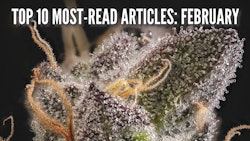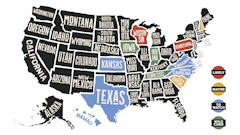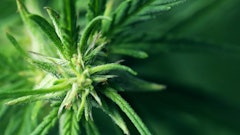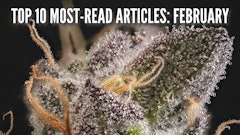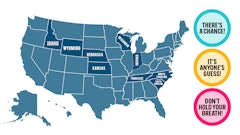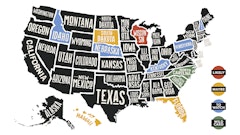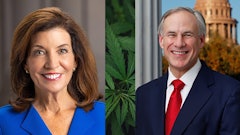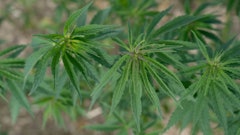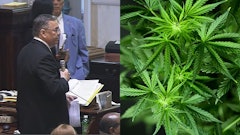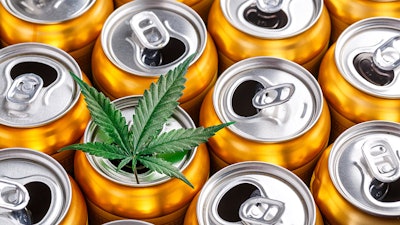
South Carolina Solicitor General Robert D. Cook issued an opinion Sept. 16 that it is legal to manufacture, distribute and sell nonalcoholic beverages containing hemp-derived delta-9 THC in compliance with the 2018 Farm Bill.
However, the chief legal officer in South Carolina Attorney General Alan Wilson’s office said state officials are unable to provide a “blanket” assessment of the legality of a category of THC-infused beverages, meaning that “the legality of a particular THC-infused drink must be determined individually.”
Cook issued this opinion in a letter to South Carolina House Speaker D. Murrell Smith Jr., R-Sumter, who sought clarity on the matter.
“No statute, regulation, agency guidance or prior attorney general opinion provides a clear answer as to whether these hemp-infused beverages that are manufactured, distributed or sold in South Carolina are legal,” Smith wrote in a letter to the attorney general’s office, pointing to a July 2019 opinion from Wilson’s office that confirmed material containing more than 0.3% THC would constitute marijuana.
“But it did not explicitly state whether possession or sale of products containing hemp-derived THC with concentrations of delta-9 THC not more than 0.3% are legal in South Carolina,” Smith wrote.
South Carolina is one of nine states in the U.S. without a medical cannabis program. The state’s Senate passed medical cannabis legalization bills twice, in 2022 and 2024, but the House, under Smith’s speakership since May 2022, has failed to act.
In his opinion this week, Cook analyzed federal and state statutes and reviewed related case law to determine that any hemp-infused drinks that meet the standard set in the 2018 Farm Bill are legal in South Carolina.
The Agriculture Improvement Act of 2018 (the 2018 Farm Bill) legally defines hemp as any part of the cannabis plant, or derivative thereof, that contains no more than 0.3% delta-9 THC on a dry-weight basis.
“Any drink which meets this requirement is legal,” Cook wrote. “This legalization of hemp is the result of passage by Congress in 2018 of the Farm Bill and the enactment by the [South Carolina] General Assembly in 2019 of the Hemp Farming Act. In each of these pieces of legislation, hemp and hemp products were removed from the classification of a controlled substance and made legal if they meet the foregoing standard of concentration.”
South Carolina’s Hemp Farming Act, signed by Gov. Henry McMaster in March 2019, was enacted to prohibit the “cultivation, handling or processing of hemp without a hemp license” issued by the state’s Department of Agriculture.
However, the South Carolina Attorney General’s office issued an opinion in October 2021 to the state’s Law Enforcement Division (SLED) that the lawfulness of hemp and hemp products all hinge on the “federally defined THC level for hemp.”
“The problem is determination of the THC content in a particular drink or category of drink sold,” Cook wrote in his opinion this week. “Just as with respect to the legality of any other substance, this is a factual question, beyond the scope of opinion of this office, and is an issue for law enforcement and the courts to determine.”
While the attorney general’s opinion—often written by the solicitor general—attempts to resolve questions of law as the author believes a court would decide the issue, the opinion cannot decide factual disputes.
Cook cited a federal court case from 2022, Hembrook v. Seiber, that stemmed from a traffic stop and arrest in Tennessee in which an officer could “smell marijuana” in a vehicle before searching and finding roughly nine pounds of plant material. The driver operated a licensed industrial hemp farm.
The case noted that it’s “impossible to visually distinguish whether a cannabis plant is either marijuana or hemp by looking at it—it has to be scientifically tested—and hemp and marijuana smell the same and are indistinguishable based upon smell alone.”
In that regard, a laboratory would need to conduct a cannabinoid content analysis to determine whether an individual beverage product containing delta-9 THC is compliant with the 2018 Farm Bill.
“Individual case-by-case analysis is imperative,” Cook wrote. “Otherwise, it is pure ‘guesswork’ as to the concentration of THC in a particular canned drink.”
In addition to asking the attorney general office to provide an opinion on the legality of hemp-infused beverages, Smith sought additional clarity on the marketing of such products.
“If the answer to this question is yes [that hemp-infused beverages are legal], do any restrictions currently exist regarding the sale and marketing of these products to minors?” Smith asked in his letter to the attorney general’s office.
Although Cook didn’t explicitly address this question, he did suggest that state lawmakers should consider revisiting South Carolina’s Hemp Farming Act of 2019 to address the various issues surrounding the regulation of hemp-infused drinks and food products, such as public health and safety concerns. Specifically, the act did not intend to regulate hemp products, Cook wrote.
Cook also pointed out that while raw plant material testing at less than 0.3% THC on a dry-weight basis is widely considered nonintoxicating, the same isn’t necessarily true for edible products. The South Carolina solicitor general cited a 2023 Albany County Supreme Court case, N. Fork Distribution Inc. v. N.Y. State Cannabis Control Bd., which stated that the 2018 Farm Bill’s THC levels “primarily contemplated application to plants.”
“The 0.3% THC weight limit in the Farm Bill equates to a minuscule amount of THC in dried plant matter,” according to the court decision. “However, hemp-infused edibles and beverages are more dense than dried plant matter, and as a result, contain significantly higher amounts of THC than does dried plant matter under the federal weight-bases standard. In other words, the hemp-infused products are potent intoxicants.”
Here’s how Florida-based licensed laboratory ACS Labs explains it: “A 12-ounce beverage could contain approximately 1,100 milligrams of delta-9 THC and remain under 0.3% of total weight. Ah, the power of ingenuity.”
In other words, 1,100 milligrams (1.1 grams) of THC divided by 12 ounces (340 grams) of liquid is roughly 0.3% on the federal “dry-weight basis.”
Another court case, Climbing Kites LLC v. Iowa, explained it this way: “Although a 0.3% limit on a dry-weight basis for THC would preclude its intoxicating effects if it were consumed as inhalant, when infused into beverages and other food, these products may be very intoxicating even under the statutory potency limit.”
In other words, the 2018 Farm Bill’s focus was on agriculture, “not canned drinks,” Cook wrote in his Sept. 16 opinion.
“It is clear … that the overarching purpose of federal and state hemp legislation was the deregulation of hemp for its use in agricultural endeavors,” he wrote. “Application of the legislation to THC-infused drinks was … a ‘consequence’ of the legislation but clearly not the principal focus of lawmakers.”
As such, the prevalence of intoxicating products containing hemp derivatives being sold in gas stations, smoke shops and convenience stores has exploded in recent years, making the products difficult to regulate. These intoxicating products often don’t meet the same packaging, age-restriction and testing standards of various state-licensed cannabis markets.
As a result, state attorneys general throughout the nation have taken steps to address consumer concerns about the unregulated market for intoxicating hemp-derived cannabinoid products.
RELATED: State AGs Take Action to Quell Proliferation of Intoxicating Hemp Products
But the fact that infused beverages would need to be tested on a case-by-case basis to determine if they comply with South Carolina’s Hemp Farm Act provides good reason for the General Assembly to renew its consideration of state law, Cook wrote.
In light of the need for legal clarity, Cook said other states are considering numerous issues regarding public health and safety for intoxicating hemp-derived cannabinoid products:
- Whether children can purchase the products
- Whether there should be age limits
- Whether labeling requirements are required
- Whether the products are safe
- Whether the products are compliant without case-by-case testing
In addition, Cook wrote that the South Carolina Legislature can address which agency is responsible for the enforcement and regulation of hemp-derived products and provide additional clarity to serve the public interest on the matter should lawmakers reconsider the state’s Hemp Farm Act.
“If such a drink meets [the 0.3% THC] statutory requirement, it is legal under current law,” he wrote, underlining those three words. “Beyond that, this office in an opinion, cannot go. The Legislature may wish to further address the many issues raised herein—including public health—arising from the sale of THC-infused drinks.”









